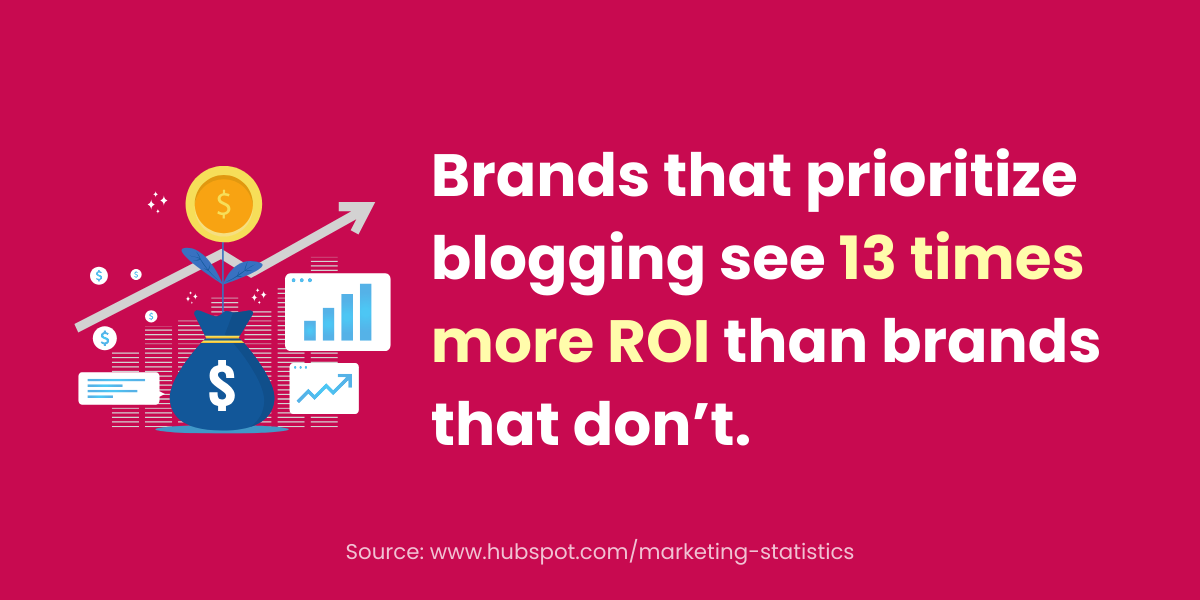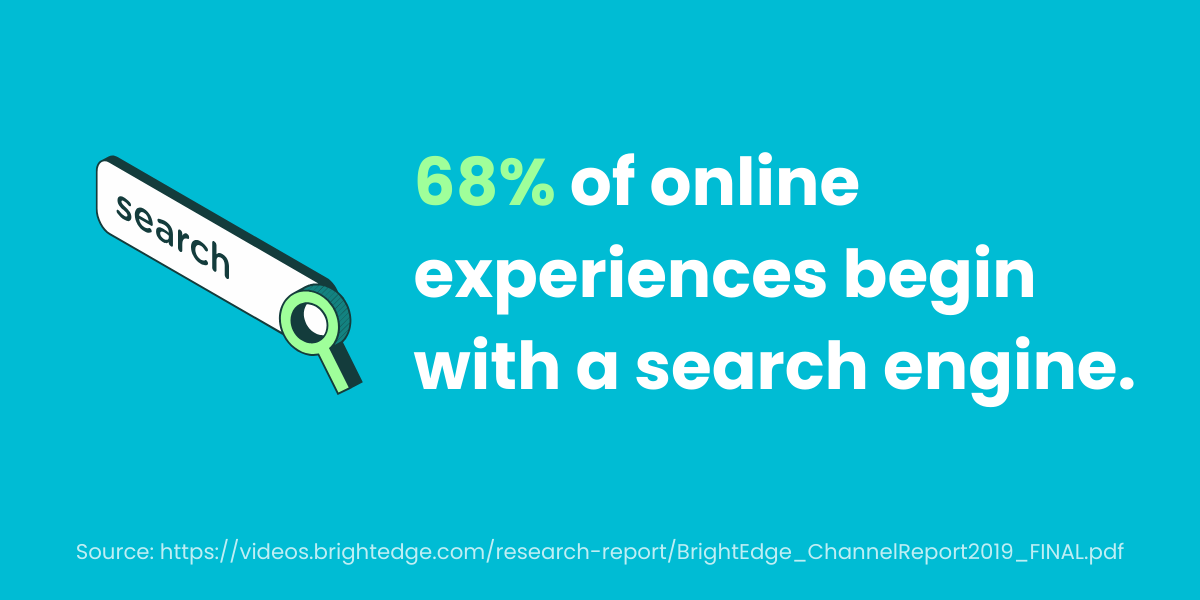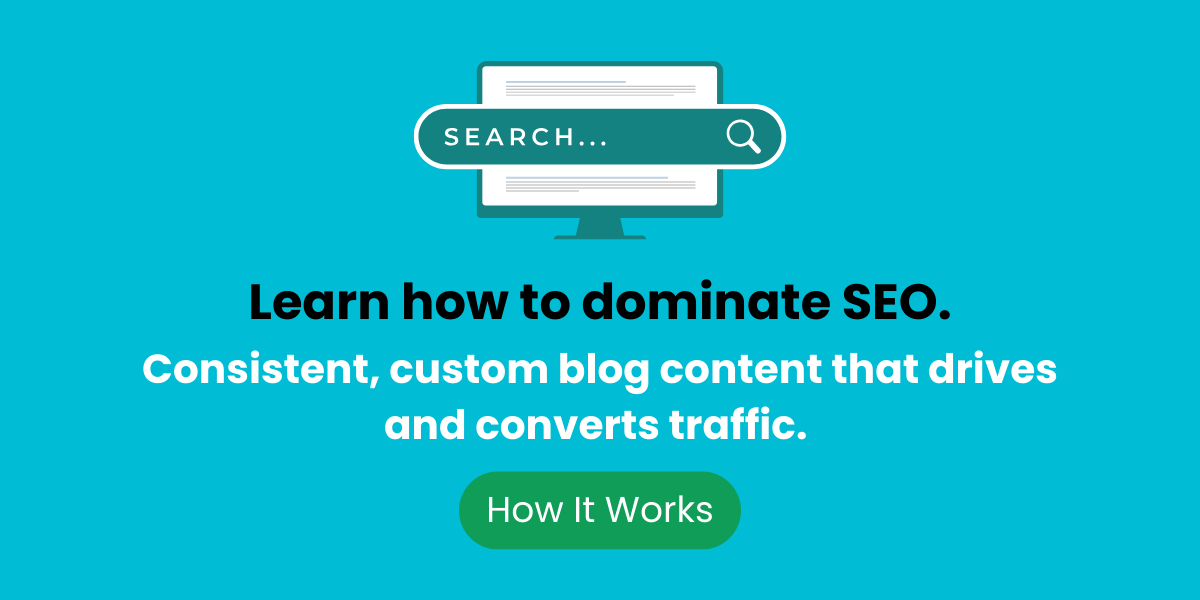A strong online presence is essential in today’s digital world for any business looking to thrive. And a critical component of building that online presence is generating leads. This is where SEO for lead generation comes in – it helps you attract potential customers actively searching for what you offer.
Table Of Contents:
- Why is SEO important for your lead generation strategy?
- How to use SEO to get more leads for your website
- Local SEO Lead Generation
- How to Convert Your SEO Leads Into Sales
- How to Measure SEO Lead Generation Success
Why is SEO important for your lead generation strategy?
Think of it this way; when someone searches for something related to your business on Google, wouldn’t it be great if your website was the first one they saw in search engines? That’s precisely what SEO aims to do. This strategy involves numerous techniques to help your site rank higher in search engine results, making your business more visible to your ideal audience.
SEO strategies go beyond just getting your website noticed. It’s about attracting quality leads who are genuinely interested in your products or services. This sets the stage for better conversions and lasting customer relationships. According to a study by Marketing Charts, almost 60% of B2B businesses view SEO as their top channel for generating leads.

How to use SEO to get more leads for your website
SEO for lead generation is a powerful way to increase your customer base and overall sales. However, all the noise surrounding different tactics and methods can make it feel overwhelming. You may be asking yourself, “where do I even start?”
Instead of trying to cover everything at once, we decided to break down some essential elements you can focus on to generate those much-needed leads.
Keyword research
Imagine trying to fish in an empty pond. It would be pointless, right? The same goes for your SEO for lead generation efforts. Without targeting the right keywords, you are essentially casting a wide net without catching any fish.
Keyword research involves uncovering what your potential customers are searching for on Google and other search engines. Tools such as SEMrush, Ahrefs, and Google Keyword Planner provide insight into what people are searching for in your specific niche. You can also see what your competitors are doing to secure high search rankings. This data is pure gold when you’re formulating a content strategy that aligns with audience demand.
Long-tail keywords are longer and more specific phrases. These are incredibly effective because they allow you to laser-focus your content. This will help you reach users that are closer to making a purchase decision. For example, “best digital marketing agency for small businesses” has a higher chance of attracting qualified leads than just “digital marketing agency.” Interestingly, research has shown that long-tail keywords convert 2.5x higher than head keywords. Understanding this dynamic helps refine your content to target keywords with clear intent. This will turn those clicks into customers.
Create High-Quality SEO Content
If you were looking for expert advice on a specific topic, you would probably prefer detailed, comprehensive content over a short, rushed blog post. Right? Your audience feels the same way.
Crafting SEO-optimized content is non-negotiable for better search rankings. It is also vital for engaging your target audience effectively. By focusing on depth and value in every blog post, guide, or article you create, you provide real value to the reader. This keeps them on your website longer, increasing brand credibility and expertise. It also signals to search engine algorithms that your website provides top-tier information. For instance, research by Backlinko reveals that pages ranking #1 on Google have an average of 1,447 words. While hitting a magic word count is never the main goal, it shows how longer-form content performs. This is because it tends to be higher quality and contains more answers.
Content Optimization for Search Intent
Search intent is all about understanding the “why” behind a user’s search query. Optimizing your blog posts accordingly will lead to more conversions and build better relationships with potential clients. You’re no longer just writing for a search engine but addressing the needs of the actual human on the other side of the screen. By focusing on informational, navigational, commercial, or transactional intent in keywords, and optimizing your website around it, you can tailor each content piece to those searches.
| Type of intent | What it Means | Examples |
|---|---|---|
| Informational | Looking for general information | “what is SEO for lead generation?”, “best SEO tips 2024” |
| Navigational | Trying to find a specific website | “SEMrush login,” “ahrefs pricing page” |
| Commercial | Researching products and comparing services | “best CRM software,” “top SEO agencies” |
| Transactional | Wanting to buy a product now | “buy iPhone 15 Pro,” “cheap flights to Bali” |
Build Backlinks for your site
Backlinks act as a form of online endorsement. Having multiple backlinks from relevant and authoritative sites tells Google and other search engines that your content is high-quality, credible, and valuable. Think of it as a popularity contest. If multiple sources deem you as credible enough to link to, then that means you are providing a great deal of value to users. This will increase your domain authority and ultimately lead to a higher rank in SERPs and more opportunities for lead generation. According to a survey, nearly 94% of link builders agreed that link quality is far more crucial than the quantity of links when it comes to successful link building and SEO performance.
Embrace Social Media for SEO for lead generation
Don’t fall into the trap of thinking social media and SEO operate in completely different lanes. While Google states that social signals do not directly factor into its rankings, many seasoned marketers know that social platforms are a gold mine for building awareness around your content, establishing yourself as a trusted voice within your industry, and directing potential leads toward your expertly crafted web pages. For example, imagine you’re a writer sharing your newest articles or blog post teasers on your Instagram. A reader comes across your valuable and informative content on how to successfully leverage social media. That reader then decides to check out your website through the bio link. That reader ultimately signs up for your email newsletter, officially converting into a lead.

Local SEO Lead Generation
Think about this: someone needs a good attorney in their city. What’s the first thing they do? They search online! Local SEO helps your business show up in those searches. It’s all about getting found by people in your area who are looking for what you offer.
Let’s say you’re a plastic surgeon. Local SEO means your website pops up when someone searches for “best plastic surgeon near me.” But, local SEO is more than just keywords. It’s about making sure your business information is consistent online. This means your name, address, and phone number should be the same on your website, social media, and online directories.
Why? Because Google likes consistency. When Google trusts your information, it’s more likely to rank you higher in local searches. Higher rankings mean more people see your website, which can lead to more calls, consultations, and ultimately, more clients.
Keyword Strategy for Local SEO Lead Generation
Think about what your ideal client might type into Google to find a business just like yours. Are they searching for a “personal injury lawyer near me” or maybe “best rhinoplasty surgeon in [city name]”? Those are your keywords, and they’re super important for local SEO lead generation.
You want to sprinkle these keywords naturally throughout your website content. This means including them in your page titles, headings, image descriptions, and even in the body text of your website. But, don’t overdo it! Google knows when you’re trying to game the system, and it can actually hurt your rankings.
Don’t forget online directories! Make sure your business is listed on sites like Yelp, Google My Business, and industry-specific directories. These listings often show up in local search results, and they give you another chance to use your keywords and attract more leads.
How to Convert Your SEO Leads Into Sales
Getting more organic traffic to your website is great, but it doesn’t mean much if they aren’t turning into paying customers. That’s where a smart lead gen strategy comes in! Think of your website as a magnet for potential customers. SEO is what makes that magnet stronger.
When people search for keywords related to your business, you want your website to pop up. But just getting them there isn’t enough. You have to make sure your website does the work to turn those visitors into leads. Here’s where we see some common mistakes:
- Confusing website design: If visitors can’t figure out what you offer or where to go, they’ll leave.
- No clear call to action: Tell people exactly what you want them to do, whether it’s booking a consultation or downloading a guide.
- Slow loading times: Nobody wants to wait around for a slow website. This is especially important on phones!
Once you’ve got a handle on your website, think about how else you can use your content. Maybe you can turn a blog post into a downloadable checklist or create social media posts from client testimonials.

How to Measure SEO Lead Generation Success
You put a lot of work into your SEO. But how do you know if it’s working? You need to track the right data. This means looking beyond vanity metrics like website traffic.
What you really want is leads! Leads are people who are interested in what you have to offer. They might sign up for your email list or request a consultation. The right SEO lead generation strategy is a fantastic way to achieve success.
Here’s how to see if your search engine optimization strategy is bringing you closer to your business goals:
- Track Form Submissions: How many people are filling out forms on your website? If you’re an attorney or plastic surgeon, this could be a contact form or an appointment request. This is a strong signal that your SEO is attracting the right people.
- Monitor Phone Calls: Are you getting more calls since you started focusing on SEO? Use call tracking software to see how many calls are coming from people who found you through search engines.
- Analyze Email Sign-Ups: A healthy email list is gold! If your SEO is doing its job, you should see a steady increase in people subscribing to your email content.
FAQs About SEO for Lead Generation
Does SEO help with lead generation?
Yes. By improving your search engine rankings and making your website more visible to your target audience, you will drive more traffic to your website, increase brand awareness, and generate leads that convert.
How to get quality leads from SEO?
Attract quality leads by conducting in-depth keyword research. You need to truly understand what your target audience searches for online. You need to create top-notch and high-quality content optimized for those specific keywords. Also, prioritize getting backlinks from relevant websites within your niche. Building trust with online reviews and monitoring key metrics to analyze your results can drastically affect the quality of leads.
What is an SEO lead?
An SEO lead essentially comes across your website through organic search results. This means they didn’t find you through an ad. An SEO lead then expresses interest in your services or product offerings by performing an action. These actions can include things like providing contact information, signing up for a free trial, or downloading resources you offer on the site.
What is the best strategy for lead generation?
The most effective approach usually blends several strategies together. Although this depends on a multitude of factors specific to each business, you might incorporate SEO with methods such as email marketing, paid advertising (PPC), content marketing, social media engagement, or even affiliate partnerships. For lasting success, continuous testing, learning, and optimizing each method depending on results is highly recommended.
Conclusion
SEO for lead generation can feel pretty overwhelming when just starting out. There are tons of blogs that overpromise fast results without properly explaining that success with SEO for lead generation, like all strategies, takes time and effort. If you want to generate leads with SEO, you must be willing to continually monitor the results, embrace experimentation, and be open to changing with Google’s evolving search algorithm.








